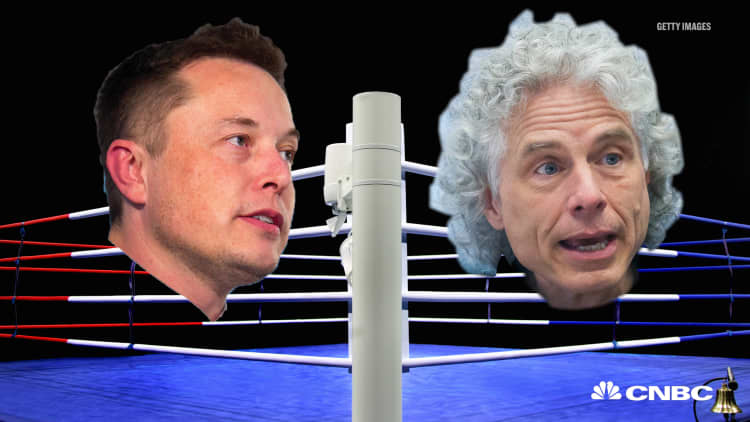The internet has been abuzz about the introduction of generative AI tools like ChatGPT, which gained tens of millions of users within a matter of months after its fall 2022 release. Google and Microsoft are currently testing out their own generative AI tools as well. And people are nervous.
More than a third, 37% of adults are pessimistic about the future impact of AI on workers, according to a recent Jobs for the Future survey of 2,204 adults, and 25% believe AI will hurt their industry.
Changes in tech at work are nothing new. “Technology transforming how we work is just a story of at least the past 200 years since the industrial revolution,” says Aaron Benanav, assistant professor of sociology at Syracuse University.
What makes generative AI different, at least in the way it’s been widely discussed, is that it “could affect traditional professional jobs like legal services, financial services, so higher paying jobs,” says Felix Koenig, assistant professor of economics at Carnegie Mellon University. And perhaps those jobs have been perceived as immune.
A recent analysis from the Pew Research Center found that jobs in which the most important tasks could be replaced or aided by AI tended to be “in higher-paying fields where a college education and analytical skills can be a plus.”
History could help predict how generative AI “might actually influence or change work in the future,” says Benanav. Here’s what historians think could be in store for some roles.
Tech could ‘turn good jobs into bad jobs’
Generative AI could change the nature and parameters of certain jobs.
Tools like ChatGPT could be used to take a complex role which one person was doing and “break that one job into five jobs or 10 jobs or even, like, 50 jobs,” says Jason Resnikoff, assistant professor of contemporary history at the University of Groningen in the Netherlands. Each one of these jobs would then require less skill and expertise to ultimately complete the larger project.
Resnikoff gives the example of what could happen to writers in the entertainment industry, who’ve been on strike since May 2, in part because of stalled negotiations over the use of AI in their field.
One option is “we’ll have an assembly line for a script for some TV show,” he says, adding that, “AI would produce bad dialogue, and then there’d be the dialogue finisher. And then it would produce a bad premise, and there’d be the premise coordinator. You’d have many different writers’ jobs — none of them is writer.” And each one of these jobs would, theoretically, take less skill and pay less than the current job of a writer.
Another option is “you make a two-tier system,” he says.
The top tier would be “a very thin layer of craft workers who are super well remunerated, and they work in like a boutique shop,” Resnikoff says. Second-tier workers would have “really s—– jobs and jobs that are extremely insecure.” While the first-tier writers might work on every component of a script, “all the other TV is written by a machine and all these peons working at it,” he says.
“S—– jobs,” as Resnikoff describes them, get at the core of the kind of job degradation this direction would result in. Historically, breaking up larger roles requiring a lot of skill and expertise into a series of smaller ones has allowed employers to say, “you’re doing so much less,” says Resnikoff, “so we’re going to pay you half of what you made before.”
Introducing new tech into the process has been a way “to turn good jobs into bad jobs,” he says.
One person could do a job historically done by many
Another possible effect of this new tech is that some jobs will get eradicated altogether. Koenig gives the example of what happened after the introduction of talkies, or films with sound, in the 1920s.
Up until that point, movie theaters hired musicians that would play live music while the otherwise silent film was showing. “There was actually a major union-driven drive that opposed the introduction of the talkies, sound recorded movies,” he says. “In part that was because there was fear that that would replace all these musicians.”
And while talkies didn’t eradicate the need for a musician to make music that would be played during a film, now, you have “one person that can play once and be listened to millions of times over,” he says.
“The musician still plays the piano as they would 100 years ago,” he says. “But it’s just one person now that does the job that used to be done by hundreds of people.” A recent analysis by Goldman Sachs found that, globally, 300 million jobs could be lost to generative AI.
‘What typically happens is new jobs emerge’
Generative AI could also have some positive effects on the workplace.
“I think about academics having to write grants all the time,” says Benanav, as an example. Those can be formulaic and would take far less time with the help of a machine. In programming, it’s helping engineers “write up basic outlines of code or sometimes like whole sections of code,” he says.
Plus, “what typically happens is new jobs emerge that just didn’t exist,” says Koenig about this kind of change.
In fact, new jobs have already emerged. Freelancer platform Fiverr has seen many new generative AI-oriented gigs pop up on their site since the onset of 2023, such as AI consultant and AI video editor. ZipRecruiter has also seen new full-time positions like creative director in AI and AI research scientist.
‘The future is open’
Whatever changes are made in the workforce now and whatever the job market looks like down the line, it’s important to remember that “the real thing that’s driving this is profit,” says Resnikoff. Companies are incentivized to prioritize their bottom line for a variety of reasons, and sometimes that means driving down the cost of labor.
“The process that tech is usually promoting is, like, the machine is taking over, right?” says Resnikoff. “That’s the story that they’re telling.” But, ultimately, it’s really the people in charge of their given workforces making the decision to create jobs that pay less or to cut jobs altogether.
That being the case, and with all of the different possibilities at play, Benanav would remind workers that “the future is open.”
“The job could get better or worse,” he says, “and you should fight to try to create the conditions where it’s going to get better.”
DON’T MISS: Want to be smarter and more successful with your money, work & life? Sign up for our new newsletter!
Check out:
‘I got a check the other day for $8’: TV and film writers share why they’re on strike
This AI-based gig will be ‘the biggest new side hustle,’ says expert—and it can pay $100 per hour
Hollywood actors join writers on strike: ‘There’s a lot of bitterness and mistrust’


